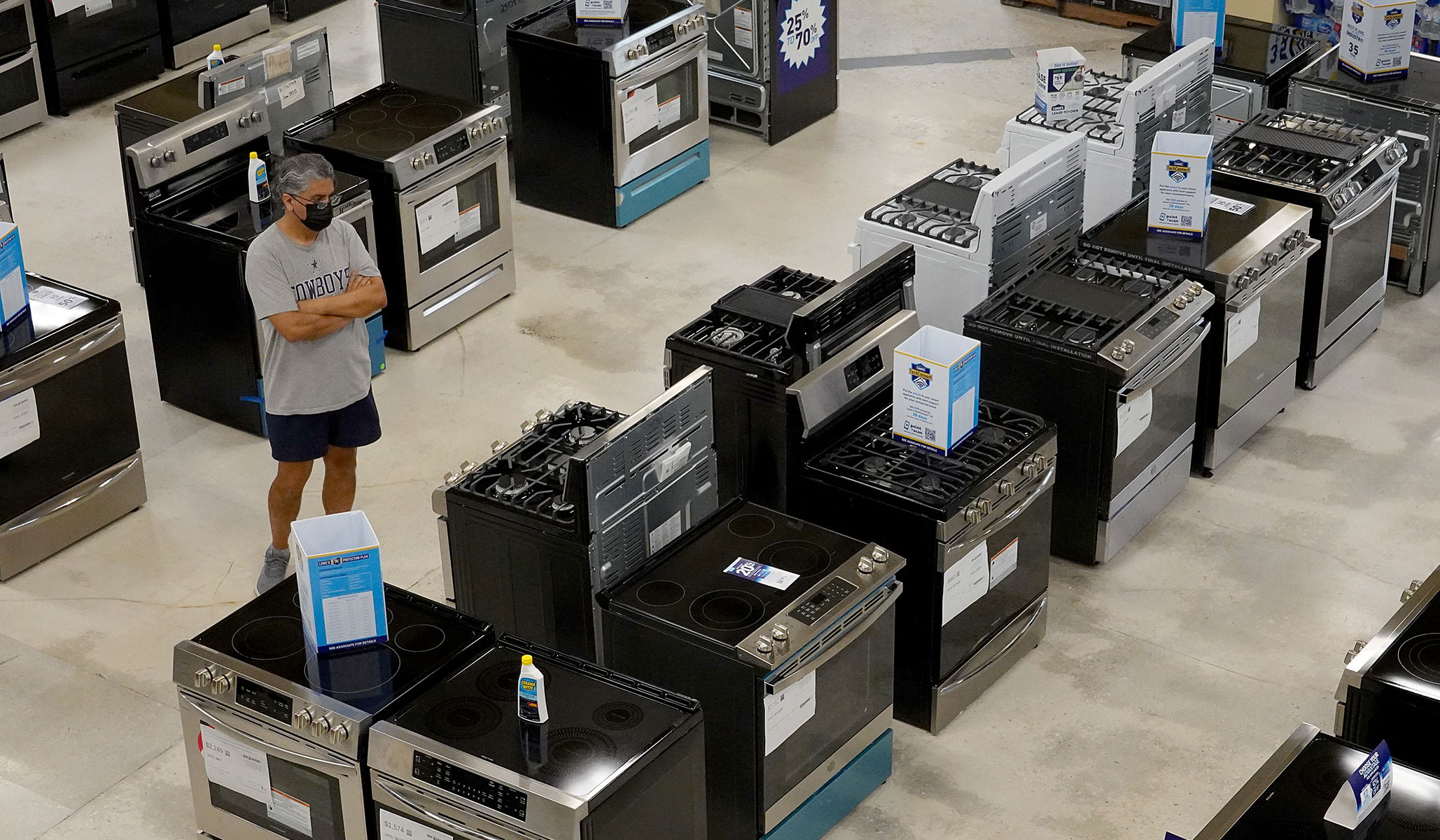


NRPLUS MEMBER ARTICLE T he long march through the kitchen isn’t over. Dominic Pino reports that the Consumer Product Safety Commission is “seeking public input on chronic hazards associated with gas stoves and proposed solutions to these hazards.” This pursuit of public comment arrives two months after Biden’s ally Richard Trumka Jr. — a commissioner on the ostensibly independent CPSC — said that a ban on gas stoves was “on the table” because of the supposed relationship between such appliances and childhood asthma and climate change. (Never mind the shoddy studies suggesting these relationships.)
The public outcry against this bureaucratic meddling was swift and forceful. Chastened, the chairman of the CPSC clarified that there was no push to ban gas stoves outright. Trumka also stressed that only new stoves would be subject to the heightened regulation. But the regulation as proposed would proscribe by non-congressional edict about half of the currently available gas-stove models. As noted by Energy Wire, “the gas stove industry will have to change what it sells to meet the standard.”
One might wonder whether the gas-stove news would lead to a run on GE and Whirlpool gas cookers — much as gun owners tend to clear the shelves when new regulation is on the minds of lawmakers. Thus far, little evidence supports the idea that Americans are kicking down the doors of the nearest Best Buy or Lowe’s to load up on ranges.
To gain a bit of insight, I spoke with a couple of men who work with these appliances for a living. They’re sure that the top-down obsession with controlling how Americans cook in their own homes is not going away. They’ve observed similar efforts to impose ever more demanding regulations on refrigerators and other appliances in the name of increased efficiency — making for less robust machines as manufacturers reduced quality to compete on price.
Ben Schlichter, an appliance repairman in central Ohio and the Maytag Man–style host of Ben’s Appliances and Junk on YouTube, illustrated the high costs of efficiency by pointing to an episode in California regulatory history in the early 2000s concerning washing machines. Legislators were concerned because “high-efficiency washing machines were $1,000 average price, and the low-efficiency units were a $500 average price — concerned about the $500 differential for the poor.” Those worries turned out to be unfounded, but only because the industry compensated in an unwelcome way. “Those $1,000 units dropped to $500, but the reliability just hit rock bottom,” Schlichter said.
He expressed concern that the same diminishment in quality would happen with stoves, predicting that “electric units will [similarly] become crappier.” That means people will have to replace their stoves more often; regulators may claim that “going from gas to electric because they’re more efficient on energy usage” will yield greater efficiency overall, but in fact it’s “going to be eaten back by the lower reliability.”
Given the limited size of his shop, Schlichter suggested that I speak with Eugene Pallas of Lorain Furniture & Appliance, in northern Ohio, which carries a much larger inventory. Pallas was likely to have a broader perspective on consumer interest in purchasing stoves ahead of any CPSC actions.
Pallas, who is 40, realized his technical abilities as a 16-year-old, when he bought a 1982 VW Rabbit for $150 and figured out how to repair it himself using Chilton repair manuals from the public library. After high school, he purchased an existing appliance business and built it into what it is today.
When asked if he was hearing much chatter about ban-influenced purchases, Pallas could recall only one customer who made a “tongue-in-cheek” mention of the gas-stove issue while perusing the units on the floor. Noting the longevity of some gas stoves — his business has serviced some ranges that have been in customers’ homes for over seven decades — he reckoned an outright ban would not happen in his lifetime. As for the comparative interest in gas vs. electric, Pallas said that he sells gas units at a rate of “five to one, minimum. Probably ten to one.”
He then similarly noted that the most likely efficiency enforcement would stem from California’s requirements.
Pallas said, “I have it on good information that LG washing machines are all — every single one, for the entire country — calibrated to meet California standards.” So even a washer destined for a home in Ohio, where “it would be allowed to have a little bit more water,” is set “to the California standard.” With most consumer goods, as evidenced by the California-mandated cancer warnings on certain products sold worldwide, a single state can alter the market just as abruptly as a federal mandate.
Considering that municipalities and states are already heavily regulating gas stoves, the trend lines are clear. And while Schlichter and Pallas think the short-term risk of an outright ban is low, the concern is that ever-growing legislation could lower appliance quality and decrease customers’ satisfaction, as they’ll be forced to repair or replace machines that simply don’t last — undercutting the supposed environmental benefit of high-efficiency machines.
It’s worth noting that more complicated and less durable appliances would result in some financial benefit to appliance salesmen and repairmen. It’s a credit to Schlichter and Pallas that they not only dislike the idea of reaping a windfall from regulatory impositions but that each has a YouTube channel devoted to instructing customers on how to repair machines themselves.
